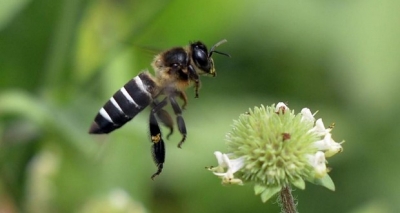
It affects them like alcohol affects humans, resulting in flying accidents. They also find it difficult to get back to their hive. Not just that, they are prohibited from entering their hive by the other bees at the hive.
After sucking on fermented limes, a drunken bee will return home to its hive (if it can make it back, that is). Because of the honey bee’s complex and intricate way of communicating through their waggle dance, it is not very difficult for the other members of a colony to detect the drunken bee. Once spotted, the guard bees of the hive will immediately begin their investigation and punishment. The rules of the honey bee society are quite strict, and without much thought, the guard bees will begin to bite off the drunken bee’s legs as punishment. One by one the bee’s legs are torn off, and the poor drunk honeybee doesn’t have much of a chance of living after her traumatic leg removal. This sort of punishment serves as a warning to the rest of the hive to never stray away from their duties to their colony.
“On the molecular level, the brains of honey bees and humans work the same. Knowing how chronic alcohol use affects genes and proteins in the honey bee brain may help us eventually understand how alcoholism affects memory and behavior in humans, as well as the molecular basis of addiction,” stated Julie Mustard, a study co-author and a postdoctoral researcher in entomology at Ohio State University. Mustard studied the effects that ethanol (the intoxicating agent in liquor) had on honeybee behavior. This study could eventually prove the long term and social effects that alcohol has on human behavior.
Credit : Ripleys
Picture Credit : Google




